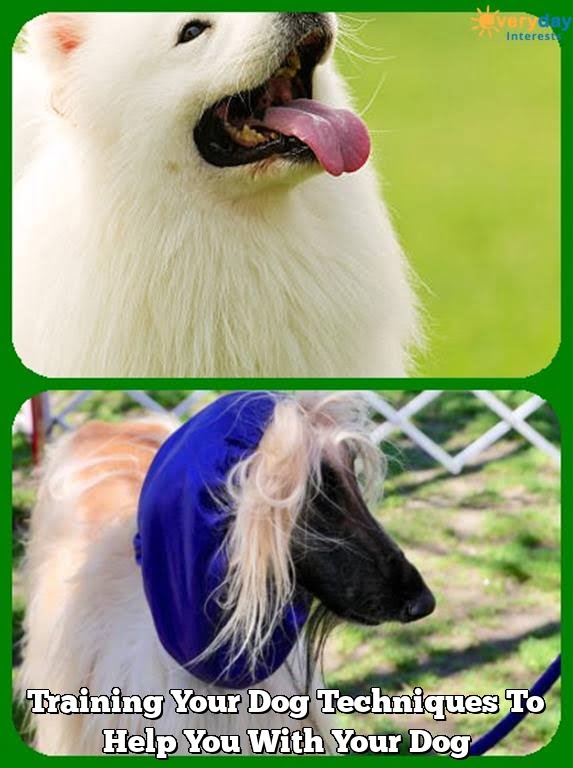Introduction
Brain training your dog is a great way to help them become the very best they can be. By providing your pet with mental stimulation, you’ll help them lead a healthier and happier life. Brain training promotes positive hormone development and helps your pup use their natural energy more efficiently. It can help reduce destructive behaviors, improve coordination, increase confidence and problem-solving skills, and even help them understand multiple commands. This type of activity is also useful for strengthening the bond between you and your pet as it requires communication, trust, patience, and mutual respect between both of you! So if you want to give your dog or puppy a better quality of life then start brain training today!
Benefits of Brain Training for Dogs
Brain training for dogs is a great way for pet owners to help their canine friends become more physically, emotionally and mentally fit. One of the main benefits of brain training your dog is improved mental health. Dogs are just like people – they have feelings and needs that need to be addressed in order for them to be truly happy and healthy. Brain training helps improve communication between pet owners and their companions, which can lead to an increased sense of wellbeing. It also helps dogs learn how to internalise their thoughts and feelings, instead of relying on external cues or behaviours to express themselves.
Brain training has also been linked with improved cognitive abilities in dogs. Cognitive skills like problem-solving and memory are essential for any dog’s learning process, which can make it easier to train them new behaviours or tricks. This kind of activity also helps keep your pup’s mind sharp, particularly if carried out on a regular basis.
One of the most important benefits associated with brain training is an increased bond between you as an owner and your dog friend. Training is all about learning how to work together as a team, and spending quality time engaging in activities improves both of your levels of happiness – it’s win-win! Dogs thrive off practicing skills together with their owner – the interaction allows the two of you to really connect with one another on a deeper level, enriching the life you share with each other even further.
Types of Brain Training available for Dogs
Clicker Training – Clicker training is a type of operant conditioning where a dog’s desired behavior is shaped and reinforced by clicking the clicker tool each time it is done. This type of training uses positive reinforcement to reward good behaviors through treats or praise. Clicker training can be used to teach any tricks or obedience commands, making it one of the most versatile types of brain training for dogs.
Agility Courses – Agility courses involve obstacle courses designed for agility, speed, and enthusiasm from your dog. The obstacles often involve jumps, tunnels, weave poles, and A-frames. Dogs are taught to navigate the course while being given verbal commands. Agilty courses are an excellent way to not only exercise you pup but also stimulate their brains with new challenges and routines.
Puzzle Toys – Puzzle toys come in many forms including treat dispensers or interactive toys that must be manipulated in order for the dog to retrieve a reward. Puzzle toys provide mental stimulation as well as physical exercise when chasing after the moving toy or rolling ball.
Brain Games – Brain games involve teaching your animal different exercises that challenge them mentally to learn new things and remember commands with increasingly difficult steps added along the way. These types of activities can range from teaching your dog hand signals like sit, down and stay to scenting objects or even turning on levers with their nose or paws!
How to Get Your Dog Started With Brain Training
Brain training your dog is a great way to help them develop behaviourally. This type of training has been around for many years and can provide your dog with necessary mental stimulation that will keep them entertained and well-behaved throughout their life. To get started on brain training with your pup, the first thing you need to do is establish positive behavioural patterns. This will be done through positive reinforcement techniques such as treats, verbal praise, and physical affection. Once you begin to reward your pup for displaying good behaviours, they will start associating those actions with positivity and become more likely to repeat them in the future. Additionally, it’s important to make sure you are consistent in giving rewards and praise so that your dog learns quickly and clearly what the proper responses are supposed to be. As the weeks and months go on, you can increase the difficulty level of activities and train your pup complex tasks that help further stimulate their minds while reinforcing their good behaviour.
Tips and Tricks for Brain Training Your Dog
Training should take place several times per day and last anywhere from 3 minutes to 10 minutes. During this time keep your dog completely engaged, providing enough variety that they remain interested and motivated. When choosing toys for the training session it is best to stick with an array of easy-to-use puzzle toys that challenge your dog’s problem solving abilities. Give your dog enough time to figure out how to use the puzzles, as you do not want them to become frustrated or give up. You can also add treats or pieces of food in these puzzles so they have something enticing to motivate them. Other great brain training activities include obedience commands and agility exercises; stay ahead by adding new activities and fun games during each session. Lastly, be sure not to forget about rewarding your pup when he does well; verbal praise and rewards treats are great incentives for him!
Benefits of Brain Training For Your Dog
Brain training your dog has many advantages. One of them is the ability to develop problem-solving skills in your pet. This can range from basic commands such as ‘sit’ or ‘stay’ to more complicated tasks that require additional thought and focus. Brain training exercises also help reduce stress levels in dogs, by giving them something constructive to do instead of being bored and anxious. Plus, it’s a great way for owners to spend quality time with their furry friends and strengthen the bond between them. Other benefits include improved communication and behavior, as well as greater confidence in their abilities and trust in their owner. Additionally, many types of brain training activities can be done indoors, meaning less reliance on outdoor walks for exercise! With all these beneficial aspects combined, it’s easy to see why engaging in brain training with your pup can truly be beneficial for both of you!
How to Maintain Brain Training Sessions With Your Dog
When it comes to brain training your dog, the key is to use variety and keep it fun. It is important to switch up the games and different activities you are doing with your pup each day so they don’t get bored or frustrated. You should also vary the difficulty and length of each session, depending on how comfortable your pup is with certain puzzles or tasks. With all of these things in mind, there are many activities that can help keep your pup engaged and learning.
Some ideas for brain training activities for dogs include: hide-and-seek games, scent detection/tracking games, maze puzzles, food puzzles (Kongs or treat-dispensing balls), memory recall games (ie: telling them a series of commands that they must remember and then executing them in sequence), obstacle courses with tricks they must complete at each place, fetch and tug of war, musical chairs (this works great if you have multiple pups!), interactive puzzle toys that require them to press certain buttons or inserts pieces into specific slots to get a reward, teaching them new behaviors through clicker training. These games allow you to challenge both their physical abilities as well as mental capabilities by incorporating lots of positive reinforcement when correct solutions are found!
Ultimately these types of activities exercise both your pup’s body and mind while still being enjoyable. When participating in challenging brain training activities such as those described above you should always closely monitor your pup’s emotional state – stop if they appear overwhelmed, distressed or disinterested – but if you do this correctly you should find yourself with a happy, healthy pup that has had a stimulating day full of learning opportunities!
Common Questions and Concerns About Brain Training For Dogs
Is there an age limit?
No, there is no fixed age limit when it comes to brain training for dogs. However, puppies may benefit from starting early on as it will help them learn more quickly and efficiently. Generally, brain training an older dog should have no negative side effects if done properly.
Is it safe?
Yes! Brain training for dogs is both effective and safe. It can be highly beneficial in helping a dog stay healthy both mentally and physically by offering positive reinforcement and stimulation. As long as the techniques are applied correctly, the risk of any harm being done to the animal is very low.
Conclusion
Brain training your dog is an essential activity that can help foster a greater bond between you and your pup. Brain training provides a stimulating and constructive way to keep your pup engaged while also giving them outlets to practice problem-solving skills. Additionally, by exercising their memory, puppies’ cognitive development is improved. This can lead to less destructive behavior and the ability to understand situations better, leading to fewer behavioral problems overall.
Overall, brain training will improve the wellbeing of both you and your pup as it strengthens the bond between the two of you in addition to providing mental stimulation for both parties. Working with your dog on its senses, problem-solving skills, memory recall, and obedience will produce tangible results that will benefit not only your pup’s mental health but yours as well. Not only does brain training challenge your pup and keep it mentally stimulated, but it is also extremely fulfilling for both humans and dogs alike; when one correctly follows directions or solves a problem, it is incredibly rewarding for all involved! Brain training creates experiences where trust and understanding can flourish – something that adds value beyond measure in any relationship.

Welcome to the blog! I am a professional dog trainer and have been working with dogs for many years. In this blog, I will be discussing various topics related to dog training, including tips, tricks, and advice. I hope you find this information helpful and informative. Thanks for reading!





